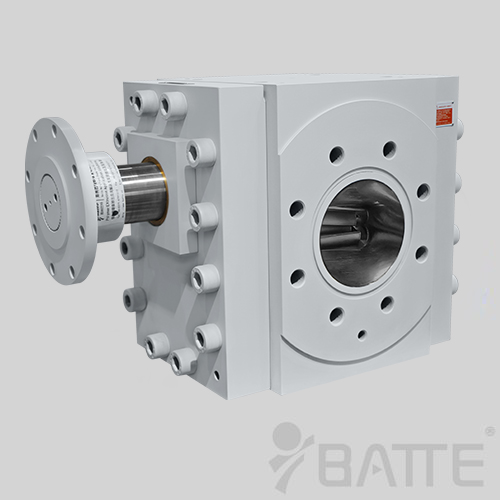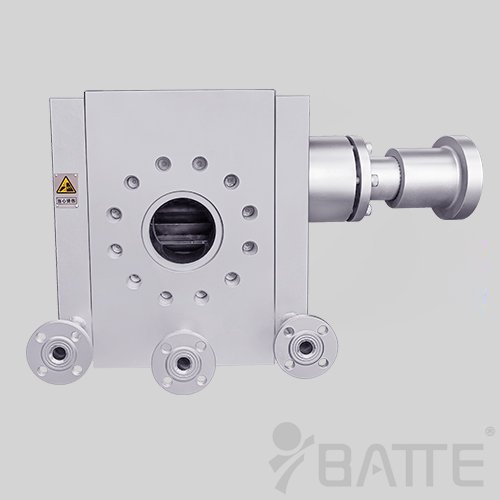
- Position:
- Batte Melt pump > NEWS >
What is dual-axis drive pump?
Petrochemical industry occupies a very important position in the national economy, a key chemical process melt pump equipment as more and more people's attention. Due to the nature of complex chemical medium, coupled with increasing demands of users, as a manufacturer, how the selection, should focus on what? Is particularly important.
Given below for the chemical pumps common problem of some selection methods: corrosion problem has been one of the most corrosive chemical equipment is headache hazards, the slightest mistake, ranging from damage to the equipment, while causing the accident and even lead to disaster. According to statistics, the destruction of chemical equipment, about 60% was due to corrosion caused by chemical pump so when the selection should pay attention to the selection of the first scientific. Usually there is a misunderstanding that stainless steel is the "universal", no matter what the media and environmental conditions are ushering in an era of stainless steel, which is very dangerous.
First, the selection point
A sulfuric acid
As one of the highly corrosive media, the use of sulfuric acid is a very wide range of important industrial raw materials. Different concentration and temperature difference between the sulfuric acid corrosion of the material is large, the concentration above 80% and a temperature of less than 80 ℃ concentrated sulfuric acid, carbon steel and cast iron has good corrosion resistance, but it is not suitable for high-speed flow of sulfuric acid, not suitable for valve materials; ordinary stainless steel such as 304 (0Cr18Ni9), 316 (0Cr18Ni12Mo2Ti) of sulfuric acid medium is limited purposes. Therefore transport sulfuric acid valve usually high silicon iron (casting and machining difficult), high-alloy stainless steel (Alloy 20) Manufacturing. Fluorine plastic has good resistance to sulfuric performance, using fluorine pump (F46) is a more economical choice. Applicable products: IHF fluorine pump, PF (FS) strong corrosion resistant centrifugal pumps, CQB-F fluorine plastic magnetic pumps.
2 hydrochloride
The overwhelming majority of metallic materials are resistant to hydrochloric acid corrosion (including stainless steel), containing molybdenum high ferrosilicon is only available for 50 ℃, 30% less hydrochloric acid. And metal materials contrary, most non-metallic materials have good corrosion resistance hydrochloride, the rubber lined pump and plastic pump (such as polypropylene, fluorine plastic, etc.) is the best choice for transport of hydrochloric acid. Applicable products: IHF fluorine pump, PF (FS) strong corrosion resistant centrifugal pumps, CQ polypropylene magnetic pump (or fluorine plastic magnetic pump) and so on.
3 nitric acid
Most of the general metal corrosion in nitric acid was rapidly destroyed, stainless steel is the most widely used anti-nitrate materials, the concentration of nitric acid at room temperature all have good corrosion resistance, it is worth mentioning that the molybdenum-containing stainless steel (such as 316,316 L ) for nitric acid corrosion resistance not only better than ordinary stainless steel (eg 304,321), and sometimes even better. For high temperature nitrate, commonly used titanium and titanium alloy materials.
Company applies to products: DFL (W) H chemical pump, DFL (W) PH shielded chemical pumps, DFCZ process pumps, DFLZP self-priming chemical pump, IH chemical pump, CQB magnetic pump, etc., the material is 304.
4 acetate
It is one of the most corrosive substances in organic, ordinary steel in all the acetic acid concentration and temperature are severe corrosion, acid-resistant stainless steel is an excellent material, 316 stainless steel containing molybdenum also suitable for high temperature and dilute acetic acid vapor . When the demanding requirements for high temperature and high concentrated acetic acid or contain other corrosive media, etc., can use high-alloy stainless steel or fluorine plastic pump.
5. Alkali (sodium hydroxide)
Widely used in the steel below 80 ℃, 30% sodium hydroxide solution concentration, there are many factories 100 ℃, ordinary steel is still 75% or less, although the increase in corrosion, but the economy is good. Ordinary stainless steel for corrosion resistance lye no significant advantage compared with cast iron, as long as the medium to allow the incorporation of a small amount of iron is not recommended parts made ??of stainless steel. For high-temperature titanium and titanium lye or use more high-alloy stainless steel. Companies generally cast iron pumps can be used for low temperature concentration of lye, can be all kinds of stainless steel pumps or fluorine plastic pump special requirements.
6. Ammonia (ammonium hydroxide)
Most metals and non-metallic corrosion in liquid ammonia and ammonia (ammonium hydroxide) in a very small, only copper and copper alloys should not be used. Most of our products suitable for ammonia and ammonia transport.

Any questions about our products, please feel free to contact us! We promise you high-end products and first-class service.Look forward to our cooperation!!!
- sales@battemachinery.com
- +0086-371-67991755



